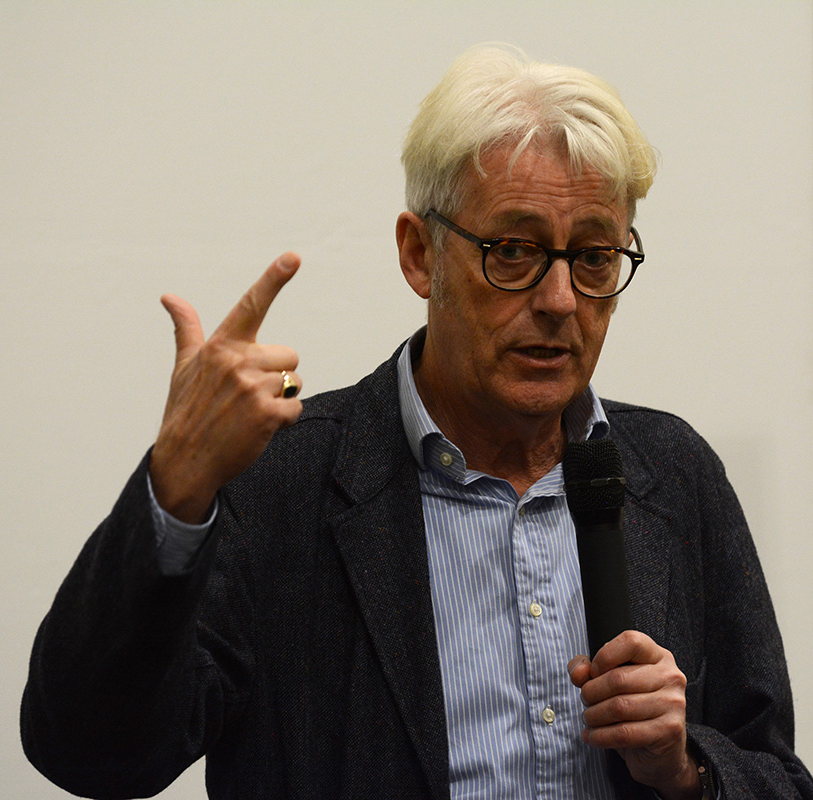 It has been interesting to see the increasing number of occasions where leading Scottish politicians including Jenny Gilruth, the Cabinet Secretary for Education and Willie Rennie, leader of the Scottish Liberal Democrats, have been advocating a more relaxed position on school exclusions.
It has been interesting to see the increasing number of occasions where leading Scottish politicians including Jenny Gilruth, the Cabinet Secretary for Education and Willie Rennie, leader of the Scottish Liberal Democrats, have been advocating a more relaxed position on school exclusions.
These are serious politicians and big hitters in Scottish terms, so what they say matters. They are responding to an understandable concern about disruptive behaviour in our schools. Survey after survey shows that Scottish teachers feel increasingly under threat from aggressive behaviour from their students. That concern needs to be addressed, but that requires more than a knee jerk demand for more exclusions.
There is growing evidence that young people have been profoundly affected by the experience of the pandemic, with more and more instances of disturbing behaviour. Attendance has become a huge issue, not simply because of absence, which is worrying enough as an issue, but because of partial attendance, with young people attending school for parts of the day or attending school, but not attending classes.
Teachers and other colleagues working in schools are struggling, so it is easy to see why excluding pupils who are disrupting education for themselves and others, while adding to staff stress and workload, seems like an obvious solution.
A couple of stories from my career in education might lead us to question that.
I have vivid and disconcerting memories of a fascinating experience that I had as Head of Education in East Lothian.
We had a unit for young people who had been excluded from mainstream provision which had failed recurrent inspections, so we closed it. The inspectors insisted on coming back to complete the process and that meant inspecting the experience of young people who would have been in the unit had it remained open.
What they reported was alarming. Work experiences that had been agreed were simply not happening. Arrangements made with families were not being implemented. Nothing was being done that made it remotely possible that these young people would be successfully readmitted to mainstream education.
Getting young people back into mainstream should surely be a key purpose of exclusion, yet in these cases, as in so many others, it had failed to achieve that.
My second story stems from my time as Director of Children’s Services in Stirling.
Our management team reviewed case histories of young people who were in crisis, seeking the point at which we might have made an intervention with children that would have led to a better outcome for them. We found that the point was always early in their school experience. Most often we believed that what would have made a difference was an intensive therapeutic intervention, yet there were few such interventions available. I think there will be even less such provision available now.
Even had there been such options we would have been unable to afford them, because the budget that we might have used was already overspent on youngsters for whom any intervention was almost certain to fail and where the spend was too late.
Where in the current discussion around exclusion is anyone talking about transition funding that would allow Councils a bit of breathing space to transfer resources to earlier intervention? Where might I find a conversation about where students will be excluded to? Where is the recognition that we need more than “out of sight, out of mind” as a basis for policy on behaviour?
No matter how frustrated and upset staff in schools might be, I refuse to believe that they want anything other than the best for children, even those that they cannot cope with. If a long career in education has taught me anything it is that teachers want more than simply to get the challenging young people out of their classrooms and onto the streets. A populist and punitive approach will sell everyone short and yet that is what we are at risk of adopting.
It is certainly the view of some influential educationalists in England that approach is what we need. They are constantly defending and, at times, apparently encouraging exclusion, via online, and in any other available, forum.
This leads to the obvious question – why am I dismissing the revived discussion on exclusion as a “zombie debate”?
It is a debate that refuses to die. It just keeps coming back, but, much more importantly, it comes limping back in a damaged, incomplete state.
Exclusion may get rid of problems. It clearly does not solve them. It will in many instances create new problems.
Scotland has committed to The Promise, a commitment to better support Looked After young people. One wonders how that commitment would square with an increase in exclusions. My experience is that few things cause a foster placement to break down faster than the young person being out of school. The reality is that Looked After Children are already more likely to be excluded so any increase in exclusions will affect them disproportionately. This is a classic example of cognitive dissonance and holding to contradictory ideas.
Arguably when young people are excluded, schools are less disrupted, other young people might be safer, school staff will be under less pressure, so their interests are served, but they are being served at the expense of some of the most vulnerable young people in the country. That takes us to the real debate, which is whether, or not, simply calling for exclusion is the best that we can do.
My answer is that it is far from the best that we can do.
We cannot set the interests of staff against those of students. We must try to serve both. To do that we need to recognise that where we have a wide spectrum of need, we require a continuum of provision. We talk about inclusion and integration and often enforce that by keeping children in mainstream provision even when it is evident that it is not working for them. We then finish up with a situation where pupils are most likely to be excluded, or to be in hugely expensive alternative provision, when they are between 14 and 16 years old. The chances of reintegration at this stage would be generously described as remote.
We are often rightly told that “teachers’ working conditions are pupils’ learning conditions”. That means that we need to address teachers’ working conditions and I think that we need to do that as a matter of urgency. It cannot be at the expense of some pupils’ conditions. The reality is that we need to enhance both. We need to start having conversations that go far beyond soundbites and begin to look at practical steps that we might take to improve both. I believe in inclusion, but it must not a shibboleth. It requires scaffolding. Alternative provision can be part of that scaffolding.
We need to be talking about all these issues rather than going back to the zombie debate that seeks only quick fixes and obsesses with punishment. As an earlier report on looked after children asserted : “We can, and must, do better.”


